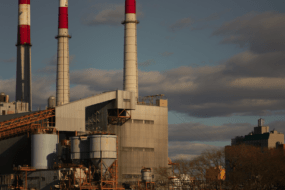- Home
- Trade News
- China’s fertiliser policies ...

China imports and exports a diverse range of goods, which can impact the health of entire industries and economies when it decides to alter those exports and imports.
Last year, China gave its businesses the order to stop exporting fertiliser to other countries. Fertiliser prices began to rise as a result of rising prices for natural gas and energy, which are significant inputs into fertiliser.
Vietnam has been the hottest industry lately, to stay updated on Vietnam, you can view all these information on Vietnam in here on our platform: https://data.cic-tp.com/asia-trade-data/vietnam-import-export-data
What does it imply to the rest of the countries?
Fertiliser is produced in enormous quantities in China. Thus, the rest of the world is affected when China exports less. The worldwide price of fertiliser increased rapidly as soon as China announced these export limitations.
This is before the war in Ukraine, or any other actions governments have taken. Leading the way by pulling its products from global markets, China contributed to an increase in fertiliser prices all around the world.
To find out more about accessing a new market, you can check out this article which shows you how to use Trade Data Pro to access Global Trade Markets: https://blog.tradedata.pro/say-hello-to-our-new-release-of-tradedata-pro/
Steel is another example of how China’s export regulation can affect other global trades. China has always been a significant steel supplier, and about 50% of world steel production in any given year comes from China.
The rest of the world has been concerned about China’s steel production. The country was widely accused of overcapacity, and its low export prices drove American, European, and steelmakers out of business.
Then Beijing abruptly announced steel export restrictions. Now, China is a steel glutton rather than a contributor to the global glut, driving up prices globally and adding further unwelcome pressures to inflation.
China has arguably made more formal pledges than any other nation to refrain from using export restrictions. This is primarily due to China’s history of utilising export restrictions. You know, other countries that have not used them have not necessarily promised they would not do so in the future because it has not been an issue for them.
However, the problem is that we do not have a functioning World Trade Organisation (WTO). No actual dispute settlement process is working, and the major economies are not talking to each other anymore about many of these trade issues. The concern stems from the economic situation, where rising food and steel prices, in particular, may come back to haunt us.
Last fall, Russia cut its fertiliser exports after observing China reduce them. Fertiliser is widely produced and exported by Russia. So, the fear is that everyone would start acting independently, worrying solely about their problems back home and ignoring the effects on the rest of the world.
Furthermore, some countries in the world do not have the option of getting fertiliser elsewhere and must import it to grow food and crops. Unfortunately, poorer countries like Ethiopia, Nigeria, South Sudan, and Yemen will be the ones to pay.
Conclusion
Major producers can harm other nations through their activities, but they can also prevent such harm.
China imposing export restrictions is a big issue globally since they are one of the biggest exporters of goods like fertiliser and steel.
If one country is relying on importing your goods, suddenly you stop exporting, which will significantly affect that specific country’s economy. So, it must be studied well before deciding because many are impacted by one choice.
Major producers need to get together and decide to stop acting in this way. If they don’t, sadly, the rest of the world will suffer and become worse off.
By using TradeData.Pro, you can see all the essential information, such as import and export data, as well as buyers’ archives. Users can view shipping data provided by logistics partners to make better-informed decisions in advance. Use Trade Data Pro to keep updated with the latest information and make the first move.
The most trustable and reliable source for Trade Data.
Since the launch of Trade Data Pro in 2018, Trade Data Pro has received overwhelmingly positive remarks from market. This is because Trade Data Pro has wide coverage, low cost, and fast response. There are many leading companies from different industries that have subscribed to Trade Data Pro .
Trade Data Pro was awarded with Singapore Quality Class in 2020 and Stevie Award Gold in 2021. Businesses need information to reveal trends, identify market opportunities, track competitors buyers and suppliers, and better understand supply chain potential.
Finding these critical data has traditionally been challenging. But this information do exist, but as part of government import and export filing requirement. The detailed shipment information which are within these filings constructions the core of the global trade.
Trade Data Pro has gathered and packaged these information as business intelligence. Our solution helps companies understand the flow of goods across borders and features the world’s largest searchable trade database. We do the heavy lifting for you by reviewing, standardising, and cleaning data, then delivering in an intuitive format.
Learn how TradeData.Pro works by watching the video below! View here on Youtube as well: https://youtu.be/QQ9wG-CesI8
Business China Commodities Export Exports Global International Trade Markets Prices Russia Worldwide
Leave a Reply Cancel reply
Archives
- April 2024
- March 2024
- January 2024
- December 2023
- November 2023
- October 2023
- September 2023
- August 2023
- July 2023
- June 2023
- May 2023
- April 2023
- March 2023
- February 2023
- January 2023
- December 2022
- November 2022
- October 2022
- September 2022
- August 2022
- July 2022
- June 2022
- May 2022
- April 2022
- March 2022
- February 2022
- January 2021
Categories
Recent Post
Chinese Automotive Expansion into Mexico for the
- April 29, 2024
- 6 min read
Global Economic Landscape: 2024 Outlook
- April 22, 2024
- 11 min read
China-Brazil Trade Relationship in 2024
- April 15, 2024
- 11 min read
All Tags
Agriculture Automotive Brazil Business Business Opportunities Buyers China Coffee Commodities Crops Ecommerce Economic Economy Electronics Energy Environmental Europe Export Exports Future Garments Global Import India Industries International Trade Leads Leads Generation manufacturing Markets Opportunities Pharmaceuticals Prices Rice Russia Supplier Textiles Trade Trade Data Trade Data Pro Turkey Ukraine United States Vietnam Worldwide







One reply on “China’s fertiliser policies and the global chain reaction”
[…] It is worth mentioning that the Chinese government restricted fertilizer exports in 2022 to protect the domestic market. Phosphate exports to Brazil fell by 50% between January and October 2022. Fertiliser imports accounted for 4.87% of Brazil’s total imports in 2020, so China’s move is bound to impact Brazil’s domestic market and agriculture. Read more about the impact of China’s fertilizer policy here. […]